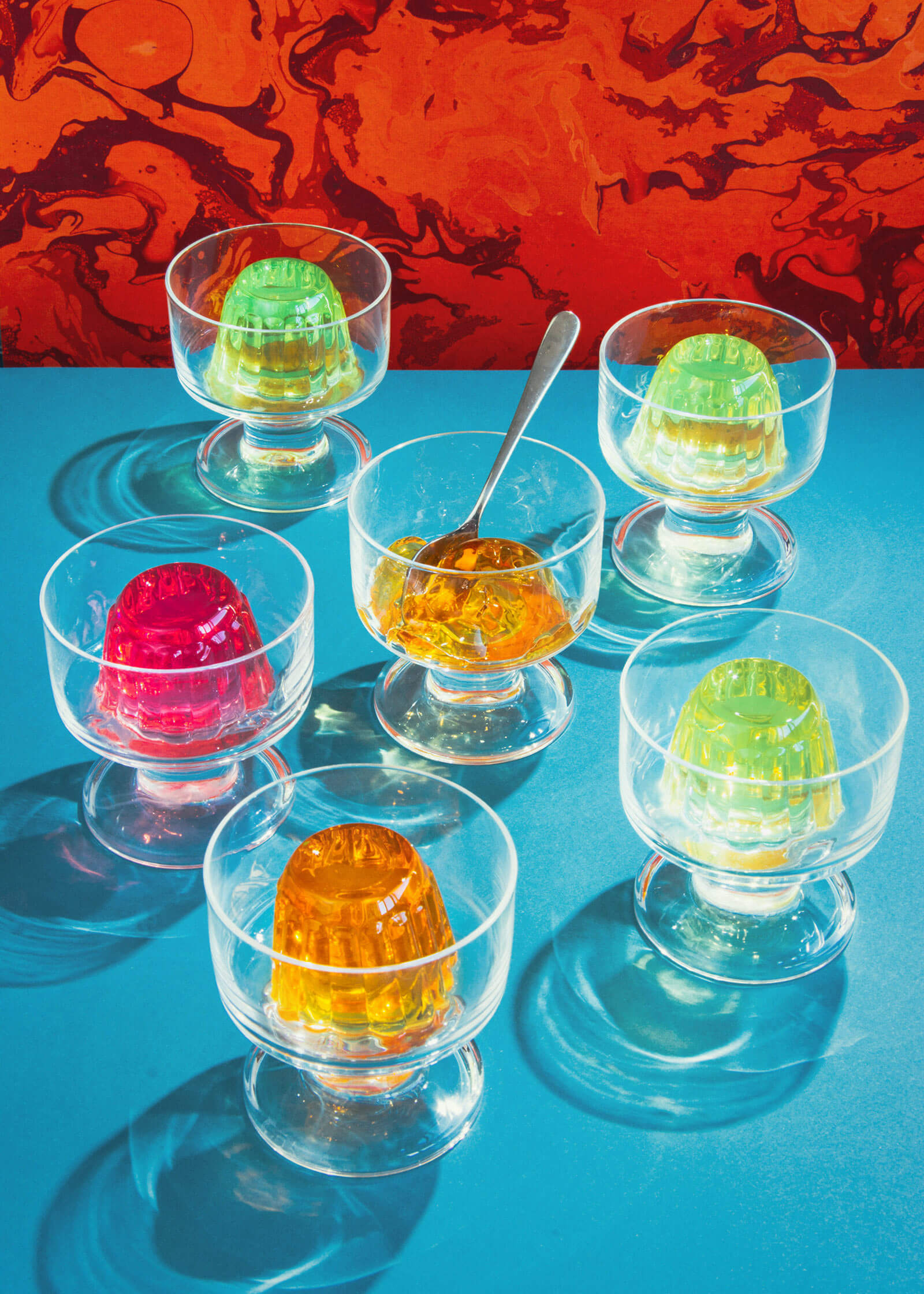
114—
Artisan Sourdough Bread
This blog-post was updated on 15/1/2020.
In the last year or so, I’ve noticed a definite increase in the number of new clients who take collagen supplements for their hair, skin, and nails.
Because I consider everything about them when I’m forming a treatment plan, I give them my advice on collagen supplementation, which many are grateful to hear because it’s not exactly a cheap ‘habit’. (Other clients, of course, just think I’m a big ‘party pooper’ 😉)
I tell them what I’ve always told my clients — I’m not a fan of ‘taking’ collagen. And that based on what they’ve told me about their general health, it’s not something I would have prescribed them.
I tell them, that if they want ‘nice’ hair, skin, and nails then we have to improve their overall health. (Which I’ll explain in detail below.)
But before I get into my spiel…
Have you read some of the blog-posts, and articles on this stuff?
They all bang-on about exactly they same things (in pretty much the same order):
They tell us what collagen is;
that while it’s the most abundant protein in the body – that we’re seemingly deficient in it from our 20s (however, that isn’t necessarily true – more on this below);
that there are many types of collagen that make up the different structures in our body;
that it’s the glue that holds our bodily bits & pieces together;
that the collagen they’re selling comes from either a marine source or from moo-cows;
that their collagen is hydrolysed into peptides;
and (some may even say) they have “research” or a “clinical study” that proves that collagen is truly ‘magical’.
They’re all just copying each other with this collagen spiel. This concerns me, as this is how misinformation is spread.
And, more than this, it greatly worries me that any Tom, Dick, or Harry can easily source this stuff, repackage it, and promote it to the masses.
Note: Are we really expected to believe that collagen supplements work based on some website & instagram photos? Show me the “research” or “clinical study” that you refer to, not some well lit, photoshopped photos of the genetically gifted! Although they probably won’t specify this information because the experts (medical specialists, and doctors) are saying there isn’t enough good evidence, at this stage (2019), to support taking collagen supplements1.🧐
These collagen-pushers are all just trying to quickly leverage this current trend, by 1) preying on ‘younger’ women in order to create fear and dissatisfaction – thus creating a new target audience, and 2) by taking the stuff, and adding something different to their ‘marketing formula’ so that you’re more likely to purchase their product rather than the competition. By tweaking the packaging and the product; by promoting and pricing it differently, they’re able to appeal to different people. And, by making it seem more special, they can charge you a premium. (Because we all know that foo-foo ‘beauty products’ must be better, right?😋)
The thing is though, most people (unless they’re vegetarian or vegan) aren’t interested in what it is, and how it works. They just want to know one thing:
Will it make me more beautiful?!
To this end, many proponents of collagen supplements tell you that they have proof that it works, because this stuff “makes its way into your blood”.
But, I’ll just come straight out with it:
If only it were that simple.
When you take a collagen supplement, your aesthetics are the last thing your body will be worried about enhancing.
They’ve only given you half the story.
If you just want to hear positive stuff about collagen then read what the sellers of it have to say.
But, if you want to hear the ‘non-fluffy’ stuff then read what the scientists and health professionals have to say.
(Just make sure the latter group aren’t selling the stuff either! As it hardly makes them objective.)

So, you (or your friend, or your favourite social media person), have deemed it necessary that you take a collagen supplement to improve the shoddy appearance of your hair, skin, and nails.
Or, you may be simply taking it in the hopes you’ll stave off the inevitable — the aging process.
Or, you may just be forking out for this stuff because you think you should.
Or, you may be taking a collagen supplement because you feel the need to keep up with the Jones’s. 🤪
Note: Come on, admit it… you’re not really taking collagen powder for your bones, joints, or gut health – well, at least, not primarily.
Now, the theory seems plausible enough: if you take a particular collagen supplement it will be used to improve that corresponding collagen structure in your body, right?
Nup.
That’s not quite how it works, sorry.
Collagen, is a particular type of protein structure.
Note: There are a number of varieties of collagen…just read the collagen spiels.
Normally, when protein is taken into the body the stomach breaks down these structures into polypeptides – small chains of amino acid sequences. However, because most collagen products are pre-hydrolysed (or come in Peptides), this ‘step’ has been made redundant.
Note: This process must account for the high cost of your collagen supplement. Because, essentially, you’re just consuming a waste-product from the fish or ‘cow’ industry 😉
polypeptides then move to the small intestine where they are further broken down into the various amino acids, or rather the individual units that make up these protein chains.
From here the amino acids are transported across the gut lumen, and liberated into the blood, to ultimately be reconfigured into a variety of protein structures.
Let me be real clear here.
Your precious (expensive) collagen, once it’s broken down, isn’t actually collagen anymore…
Hell, it’s not even protein anymore!
It’s just a bunch of amino acids that your body uses as the ingredients to make whatever protein structures that it sees fit (and healthy).
If you actually needed to take collagen (especially in your 20s & 30s) then this would indicate that your health was not up-to-scratch (please see more below). Therefore it is highly likely that your body would use this pool of amino acids to make more pressing protein structures like, oh, I don’t know, those that keep your vital organs intact, or those protein structures that regulate your body e.g. antibodies, neurotransmitters, and hormones.
So, it is far more likely that your body will use this collagen product for its other purported uses (to improve bone, joint, and/or gut health) rather than to strengthen your hair, skin, and nails.
Note: I have never recommended anyone take a collagen supplement for bone, joint, and/or gut health just FYI. And, I’ve been a practicing, full-time Naturopath for 13 years…
The only way to increase the chances that your body uses the collagen you give it for your ‘beauty accessories’ is to make sure that you are generally healthy to begin with. This way your body knows that this ‘collagen offering’ is surplus to requirement2.
But, then again…
If you were actually healthy to begin with you probably wouldn’t really need collagen supplements now, would you? As indicated by your full head of shiny hair, your clear, glowing skin, and your long, strong nails 😉

I’m always explaining to my clients who complain of having falling or lacklustre hair, or poor skin & nails, that their body is just indicating to them that they are conserving their nutrients because their general health is not up-to-scratch.
If you were an airborne aircraft and one of your engines gave out, the people aboard would start chucking surplus things out into the atmosphere – to make the aircraft lighter so you’re more likely to have a somewhat safe landing…
Hair, and nails are more like accessories rather than being vital for survival. So when things go ‘awry’ for you health-wise these are the first things to be sacrificed.
As far as the body is concerned there is no difference between the two protein structures.
Gelatin is made by the prolonged boiling of skin, cartilage, and bones from animals. It’s essentially made from meat industry ‘leftovers’ — pork skins, horns, and cattle bones. (There is some pretty educational footage of this on GOOGLE – if you’re interested😉)
The only real difference is that Gelatin has been cooked, and collagen is uncooked – making them suitable for different uses.
Note: I find it interesting that some say hydrolysed collagen is uncooked, given that others say that Collagen hydrolysate has been heated to higher temperatures and then treated with enzymes. Isn’t that a type of cooking? 😳
You can use Gelatin in cooking to bind things (to replace eggs), to make sauces and soups thicker, and to make gummies, marshmallows, and jelly (or, rather: Jell-O for all my American readers 🤗)
You can use Collagen Hydrosylate in hot or cold liquids because it dissolves and doesn’t change the texture.
However, on average, when it comes to price-points you can get twice as much Gelatin for half as much dosh as you would normally spend on Collagen. Might I suggest you check this out for yourself? (As I’m not in the market for this product.)
Note: I’m holding off buying into this stuff until I can establish what the long-term effects of taking a daily collagen supplement are. A special thanks to the droves of chicks in their 20s and 30s who are enthusiastically ‘guinea-pigging’ this stuff for us more skeptical (read: mature & wiser!) types who have seen one too many trends come and go (after not actually living up to the hype) 🤓😋

I found this on Wikipedia:
“An animal glue is an adhesive that is created by prolonged boiling of animal connective tissue.
These protein colloid glues are formed through hydrolysis of the collagen from skins, bones, tendons, and other tissues, similar to gelatin.
The word “collagen” itself derives from Greek κόλλα kolla, glue.”
Kinda makes you rethink this whole ‘collagen supplements are sexy beauty products’, right?

YOu are told to Mix your collagen Supplement into your cup of coffee
Hot water, essentially melts collagen’s molecular structure, diminishing or even negating the desired health benefits.
(So says: Brooke Russell, Assistant Professor of Microbiology, Texas A&M University. She has been studying collagen for over a decade.)3
And, additionally:
Coffee actually inhibits the production of collagen in your body.
(Caffeine reduces collagen synthesis in human cultured skin fibroblasts.) 4
🤦♀️
Save yourself some money, and do your skin a favour at the same time — drink some filtered water instead.
Since publishing this blog-post, I’ve been contacted by a natural health practitioner, who has questioned my take on collagen supplements, citing all the research that’s ‘out there’ that contradicts what I’ve said, and asking me to provide supporting evidence.
There is of course no evidence ‘against’ collagen supplements — at this stage, at least. As this product is set to become a multi-billion-dollar industry this year… it is highly unlikely that anyone who stands to benefit from these sales will fund a study disproving the efficacy of these supplements!
However, There’s a big difference between statistical significance in a laboratory and clinical significance in practice.
Just because there have been a lot of studies done on the subject, it doesn’t necessarily mean the research is relevant or of good quality. Therefore, it’s very important when you’re assessing scientific literature that you evaluate it holistically — regardless of what ‘camp’ you reside in (Orthodox health or Natural health).
My colleague also provided me with several studies that at first glance, contradict my point of view.5
However, none of these studies (or the studies that I looked at prior to writing this blog-post) fit my personal Naturopathic philosophies.
I would need to know the quality of the diet (protein, veggies, water) that the ‘healthy’ participants were consuming prior to, and during the study.
Note: When orthodox medicine/science refers to ‘healthy’ subjects this simply means they don’t have a disease – it doesn’t mean they are actually healthy.
While it sounds impressive that all the studies are “randomised, double-blind, placebo-controlled”, unfortunately this doesn’t help me.
I would need to know how collagen supplementation performs:
— vs generally improving the participant’s diet
— vs simply ensuring the participant’s dietary protein intake is adequate
— vs other (cheaper) protein supplements
— vs decreasing the person’s stress and/or decreasing their over-exercising
— vs improving their immune function and/or improving their ‘beauty’ sleep
— vs supplementing with the likes of Vitamin C, Vitamin E, Biotin, and/or Zinc (well established supplements which have many beneficial actions in the body other than just improving skin.)
Several of the supplied studies were paid for by collagen/gelatin suppliers, which is also a concern, and is probably why none of these factors have been included in any of the studies.
Regardless of these clinical studies, I won’t be recommending collagen supplementation until the science can show me that consuming it is actually necessary.
I also won’t be recommending collagen supplementation until there’s sufficient long term evidence that indicates that taking a ‘pre-digested collagen supplement’ (hydrolysed/peptides) – which effectively ‘forces’ this product into our body – won’t cause imbalance, or even damage in the body over an extended period of time to our other organs e.g. kidneys, and heart, and our vasculature.
Note: None of the provided studies used test subjects in their 20s, or males for that matter. In many cases in these studies ’no safety concerns’ was determined by the participant not experiencing any gastro-intestinal distress such as nausea or vomiting. (This product is formulated to be easily digested.) Most studies were short-term (12 weeks). The longest duration of testing was (only) for 24 weeks. (Collagen supplement suppliers encourage you to take it every day – with no end date.)
I’m just saying do you really need to take it?
As I said earlier, maybe if you just ate better, perhaps you wouldn’t actually require collagen in the first place.
When most suppliers of collagen supplements proclaim all the benefits of their product they also advise (at the very end of their collagen spiel) that you’ll get these benefits “when consumed in conjunction with a healthy, varied diet…”
Perhaps if you’re someone who is supplementing with collagen, and you believe that it has improved your health or your aesthetics, maybe that’s because you also started following this sage health advice? (And, previously you weren’t eating enough protein, or essential nutrients?)
Note: Or maybe you’re in your 20s and 30s and you feel that collagen supplements work for you? It is believed that your collagen levels drop by 1-2% each year from anywhere between the ages of 25-35 years (this is just another thing nobody can agree on). So, what I’m saying here is that it’s not like you have a significant ‘collagen deficiency’ (if at all) as yet. You’ll have to forgive me for not taking you too seriously 😏
I know people can become fixated on their aesthetics.
However, it won’t be the only thing that’s proving inadequate with your health. Perhaps you’ve not correlated your digestive issue, chronic stress, or Thyroid problem with your aesthetic issue.
While you might be eating a balanced diet, it’s possible that you’re not actually breaking down, or absorbing your nutrients optimally.
One issue that I find a lot here at OOMPH is that my clients are chronically stressed. When you’re stressed you effectively shut-down your gut, making anything you eat hard to break-down and extract the nutrients from. (More on stress below.)
I also do a lot of work with iodine deficiency. I find that if I can improve my client’s general health — their hair, skin, and nails naturally ‘come right’.
Are you eating adequate amounts of nutrients, and digesting & absorbing them optimally?
Are you doing anything that might be monopolising your body’s protein reserves, such as over-exercising, being ‘acidic‘, or experiencing poor immune function? In these cases your body will break down your ‘less important bits’, to mobilise the nutrients and use them to bolster the ‘more important bits’.
Managing your stress not only helps to improve your digestion and assimilation of nutrients, but also stops your body from disrupting collagen production, and stops the outpouring of cortisol which breaks down collagen.
Note: I’m assuming that at the end of 2019 that I don’t have to tell you that excessive: alcohol; sugar; sun exposure; and cigarette smoking aren’t good for your health; let alone your aesthetics.
Check out this previous blog-post that I wrote about being a natural — a real — beauty.
Lisa Fitzgibbon is a degree qualified (2006), experienced and registered Naturopath & Medical Herbalist. She runs her own private practice – OOMPH in Grey Lynn, Auckland, New Zealand.
Lisa has been involved in the Natural Health industry for 16 years. She draws on her professional training and experience, as well as her own personal experience to bring you realistic, holistic health advice.
Book onlineCollagen supplements.
https://www.nytimes.com/2019/11/09/style/self-care/collagen-benefits.
htmlhttps://www.washingtonpost.com/lifestyle/wellness/collagen-supplements-show-early-promise-for-skin-nails-and-joints/2018/03/23/1cd480e2-27d6-11e8-bc72-077aa4dab9ef_story.
htmlhttps://www.insider.com/do-collagen-supplements-actually-work-2019-5
https://www.todaysdietitian.com/newarchives/0319p26.shtmlhttps://www.webmd.com/skin-problems-and-treatments/news/20191212/collagen-supplements-what-the-research-shows
https://www.elle.com/uk/beauty/skin/a20764288/collagen-drinks-skincare
https://www.sciencealert.com/science-behind-collagen-supplement-market-increase
18 Research Papers Debunk the Health Benefit Claims of Collagen
Is it wise to be providing very specific protein structures to the body on a daily basis? (And, do people actually know that collagen is a protein, and that they will need to factor this into their daily diet to ensure they’re not eating excessive amounts of this macronutrient?)
We used to be very concerned that Vegetarians and Vegans weren’t getting enough complete proteins (this refers to a source of protein that contains all nine of those essential amino acids), which would cause an imbalance in their body, and lead to ill health. People following these diets are encouraged to combine their ‘proteins’ to offset this.
Note: Essential amino acids are those that your body cannot manufacture itself, and which you therefore need to consume in your diet.
https://www.sciencealert.com/putting-collagen-in-your-coffee-has-no-benefits-says-scientist
https://www.ncbi.nlm.nih.gov/pmc/articles/PMC4206198/
Bolke, L., Schlippe, G., Gerß, J., & Voss, W. (2019). A collagen supplement improves skin hydration, elasticity, roughness, and density: Results of a randomized, placebo-controlled, blind study. Nutrients, 11(10), 2494.
Koizumi, S., Inoue, N., Shimizu, M., Kwon, C. J., Kim, H. Y., & Park, K. S. (2018). Effects of Dietary Supplementation with Fish Scales-Derived Collagen Peptides on Skin Parameters and Condition: A Randomized, Placebo-Controlled, Double-Blind Study. International Journal of Peptide Research and Therapeutics, 24(3), 397-402.
Choi, F. D., Sung, C. T., Juhasz, M. L., & Mesinkovsk, N. A. (2019). Oral Collagen Supplementation: A Systematic Review of Dermatological Applications. Journal of drugs in dermatology: JDD, 18(1), 9-16.
Sibilla, S., Godfrey, M., Brewer, S., Budh-Raja, A., & Genovese, L. (2015). An overview of the beneficial effects of hydrolysed collagen as a nutraceutical on skin properties: Scientific background and clinical studies. The open nutraceuticals journal, 8(1)
Subscribe to LISA SAID SO
Subscribe to the LSS newsletter to get updates on a very irregular basis.
Sorry for the interruption!
You seem to be interested in what Lisa has to say. To be updated when new articles are published, or we have news to share, enter your email below. Thanks!